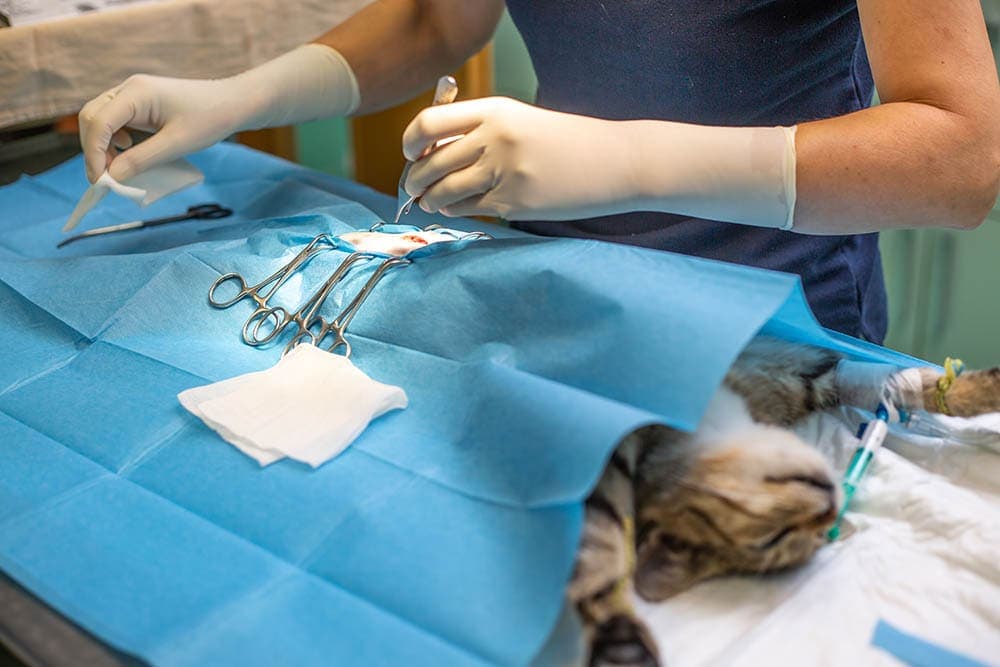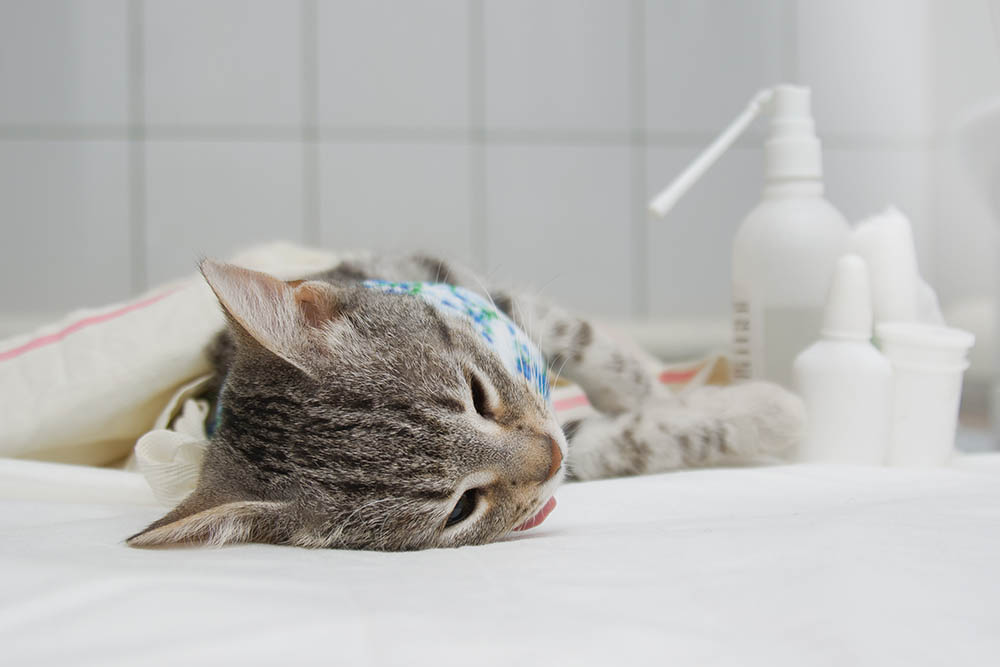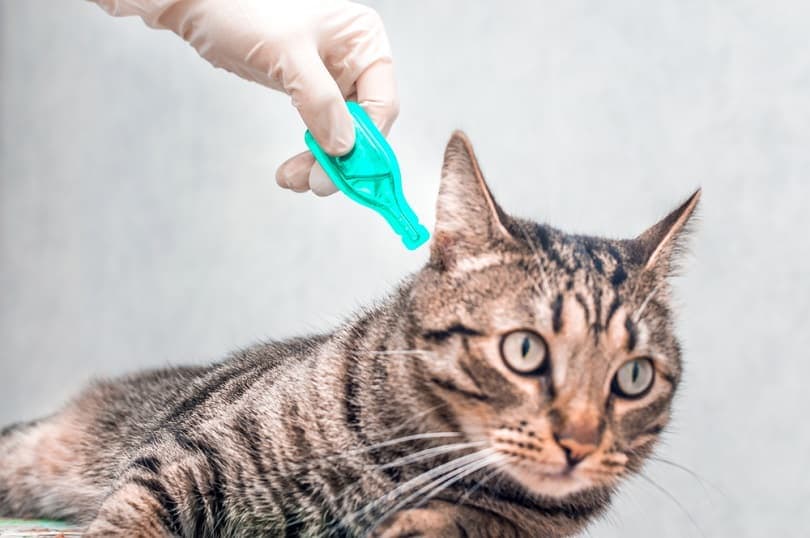How Long Will It Take to Spay a Cat? Vet-Reviewed Facts
Updated on

Taking your cat in to be spayed can be a nerve-wracking time for you. There are risks associated with any anesthetic and surgical procedure, and spaying is no different. However, many vets perform multiple spays every day, they are proficient at performing this routine surgery and will get your cat in and out as quickly and safely as possible. To help make things less scary for you, we’ve put together some information about what you should expect when you take your cat in for her spay surgery. The cat spay surgery will likely take less than 30 minutes, but your cat will probably need to be at the vet for at least a few hours. Keep reading to learn more!
When Can My Cat Be Spayed?
There is a lot of conflicting information out there about when the ideal time to spay a cat is. Some cats can go into heat as early as 4 months of age, which means they can become pregnant while they’re still kittens. Most cats are around 6–8 months of age before their first heat cycle begins.
Most vets recommend you have your cat spayed prior to the first heat cycle. This is because an intact cat will continue to go through heat cycle after heat cycle until she is bred or spayed. If you don’t have a purebred cat that you intend to breed, spaying when your cat is still young is ideal. Some vets will spay a cat as soon as they weigh 2–4 pounds, while others prefer to wait until your cat is closer to 6 months of age to perform the procedure. Ask your local veterinarian for more information on their recommendations.
Spaying or neutering is only one of many vet procedures your pets may need over the course of their lives. All of those vet visits can be pricey, but you can manage the cost with the help of a good pet insurance plan. The customized options from Spot may help you keep your pet healthy at a reasonable price.

How Long Does a Cat Spay Take?
The length of the procedure itself will depend on individual factors such as how easy it is to locate the uterus, this can be harder in overweight cats. Surgeon factors such as preferred method as well as any complicating factors. For example, a cat who is in heat may have a more complicated surgery than a cat who isn’t in heat. Most vets have performed multiple spay surgeries on cats and the surgery itself is likely to take less than 30 minutes.
Keep in mind that the surgery itself isn’t the entire length of time you should expect your cat to be going through the steps of the surgery. Your cat will be sedated beforehand, then prepped for the surgical procedure itself. This can take anywhere from 5–10 minutes. After the surgery, your cat will have to be recovered from the anesthesia. Depending on the anesthetic used, your cat may wake up within a couple of minutes, or it may take longer. They will still then need time to be steady on their feet and be able to keep warm. Your cat will likely be at the vet office for much of the day.
Your vet may prefer to keep your cat overnight on the day of her spay. This is so they can keep her contained and calm, as well as letting her fully recover from the anesthesia before you take her home. Some cats bounce back quickly from being spayed, while others may have low energy or discomfort for a few days afterward. Remember, although this is considered a routine surgery it still involves opening into the abdomen, removing the uterus and ovaries (ovariohysterectomy), and stitching the muscles, and skin together again.
Conclusion
Spaying a cat is a relatively quick procedure that most vets are extremely comfortable with performing. If you are nervous about the upcoming procedure, it’s ok for you to ask questions. Newer vets may work with a mentor, even for routine procedures, until they feel comfortable performing the surgery on their own, as human surgeons do. Your vet likely has other pets on their surgical lists for the day, both before and after your cat’s spay surgery. They may also want to give your kitty plenty of time to recover from the procedure before they call you with an update. You may not hear from your vet right after the surgery is over and they understand this is a nervous wait. You can ask when you drop your cat off at the clinic when to expect to hear from your vet and who you can call for an update in the meantime.
Featured Image Credit: Simon Kadula, Shutterstock











